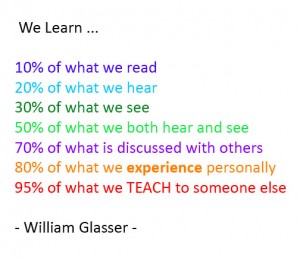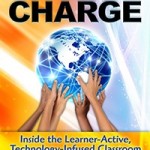The public in general, and parents specifically, have been asking why current teachers are using such different methods to teach math. The comment most often heard goes something like this – “Why can’t teachers just teach math the way we learned math?”
There are some very good reasons why the teaching of math has to change.
When I entered elementary school in the late 1950’s, most well paying jobs were in factories. Part of the job of schools was to teach students to conform, do basic arithmetic, learn to read well enough to follow directions, and learn about American History. Upon graduating from high school most of us were prepared for the job market or college. Much has changed since then.
You may have noticed that I put quotation marks around the word new in the title. The reason for that is that the math being taught today isn’t really new. When I began teaching in the early 1970’s, Head Start, kindergarten, and first grade classes were using counting blocks, fraction bars, and pattern blocks to teach concepts. Students learned and retained a fair amount of math then. Unfortunately, funding for these programs were cut and we returned to the paper and pencil world of teaching math.
Jumping forward a decade or so, teachers began hearing about theories being presented by Howard Gardner and William Glasser. Both men were interested in how people learned and neither was a teacher. Gardner was an educational psychologist and Glasser was a psychiatrist. But the theories that they presented caught the attention of many teachers.
Howard Gardner developed a theory that he called Multiple Intelligences. Included in his theory are the following intelligences: visual/spatial; verbal/linguistic; logical/mathematical; bodily/kinesthetic; musical; interpersonal; intrapersonal; naturalist. Gardner believed that each person had their own combination of intelligences.
William Glasser studied how we learn and what methods are most effective. He wrote on the components of a quality school including the techniques that worked best for learning. I had the privilege for a number of years to work with a team of 12 teachers using his quality school concepts as part of a “school within a school.” Our students were engaged, learning through projects and became confident learners. Sadly, a new principal dissolved the program.
Having just described the educational background of the new methods being used let me now mention why this is necessary for our children moving forward. As a country and as citizens of the world, we are facing many issues in the future. We will need future workers who are creative, can think outside of the box, and can apply information from a variety of subjects to solve problems. Learning mathematical rules will not serve future generations. Understanding mathematics will.
Let me leave you with this graphic to help visually convey why different teaching methods are necessary to educate all of our children.

In this graphic, Glasser sums up why our students need to problem solve together, talk about what they learn and even help teach their peers to help them retain what they learn.




